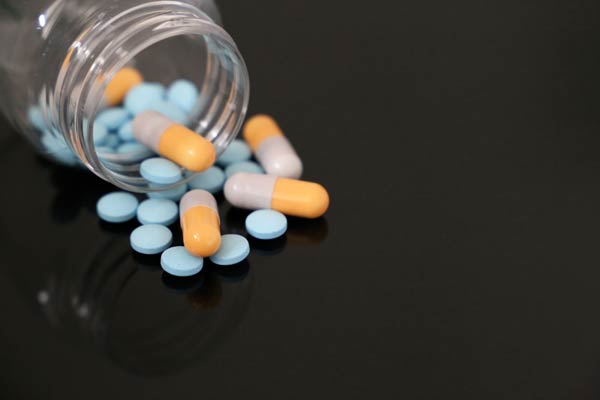Ritalin, with the active ingredient methylphenidate, is a central nervous system stimulant that is prescribed for ADHD (attention-deficit/hyperactivity disorder). Ritalin has also been used to treat other disorders such as depression, narcolepsy, cancer, brain injury, pain, and cognitive disorders. Ritalin has a high potential for addiction and dependency and is often abused by adults and teens that are seeking a stimulant-based high.
Ritalin Abuse and Side Effects
Ritalin is classified as a Schedule II narcotic. Other medications that fall under this schedule are Morphine, amphetamines, and cocaine. Schedule II drugs do have a medically recognized therapeutic purpose, but they also have a high potential for abuse. Ritalin is often abused because people who have taken it before may temporarily experience euphoria, improved concentration, mental sharpness, weight loss, and increased energy. Ritalin misuse can quickly turn to abuse because of these desired effects. Some of the other side effects of Ritalin can include dizziness, insomnia, anxiety, headache, diminished appetite, nausea, agitation, and heart palpitations. People that abuse Ritalin often experiences an initial high or euphoric feeling followed by a sudden crash. Someone that abuses Ritalin could also develop stimulant use disorder which is one of the most common side effects. Stimulant use disorder is the misuse of stimulant substances such as amphetamines, methamphetamines, or cocaine. Ritalin falls into this category as well because it works similarly in the brain to a regular amphetamine. According to an article published in 2018 by the National Institutes of Health:
Looking at annual averages, approximately 6.6% (or 16 million) of U.S. adults used prescription stimulants in the preceding year; 4.5% (or 11 million) used prescription stimulants appropriately (without misuse); 2.1% (or 5 million) misused prescription stimulants at least once, and 0.2% (or 0.4 million) had prescription stimulant use disorders. The authors found that prescription stimulant use without misuse, misuse without use disorders, and use disorders were all higher among adults with major depressive episodes, suicidal ideation, and substance use problems. More than half (56.3%) cited cognitive enhancement as the reason for misusing prescription stimulants. Although purportedly used to increase alertness and concentration, research has shown that cognitive improvement from prescription stimulants is minimal and often inconsistent. (NIH)
Signs of Ritalin Addiction
Ritalin is often abused by taking it through the nose. When Ritalin is crushed and taken intranasally the effects occur rapidly and are similar to cocaine. Some of the other potential signs of Ritalin addiction can include the following:
- Depression
- Anxiety
- Irritability
- Low appetite
- Rapid heart rate
- Suspiciousness
- Panic attacks
- Asking others for Ritalin
- Doctor shopping to obtain extra Ritalin pills
- Avoiding eye contact
- Sudden mood changes
- Low performance at work or school
- Poor self-care and grooming
Spotting the signs of Ritalin addiction could be difficult, but over time you will notice a change in the person’s behavior. Most of the time people don’t suddenly experience a change in personality out of nowhere.
Symptoms of Ritalin Addiction
Signs and symptoms are often used interchangeably, but they are different. Signs are evidence of a disease observed by others whereas symptoms are abnormalities apparent to the person. Some of the symptoms of Ritalin addiction are:
- Taking more than prescribed or intended
- Trying to cut down unsuccessfully
- Having urges or cravings
- Continuing to use despite problems it’s causing
- Not being able to function properly at work or school
- Building a tolerance to the medication
- Experiencing withdrawal when trying to stop
- No longer engaging in the family or social activities
Any addiction can be hard to overcome, but recovery is possible with the proper treatment.
Treatment for Ritalin Addiction
Recovering from an addiction to Ritalin is best done in a medically supervised treatment facility. When withdrawal from any substance occurs it can be an uncomfortable experience, but most treatment facilities are equipped to help ease these withdrawal symptoms. If you or someone you love is struggling with an addiction, our addiction specialists are available around the clock to assist you. Evoke Wellness at Cohasset offers evidence-based treatment programs to cater to the individual needs of each patient. Call us today to get started on lasting recovery.




